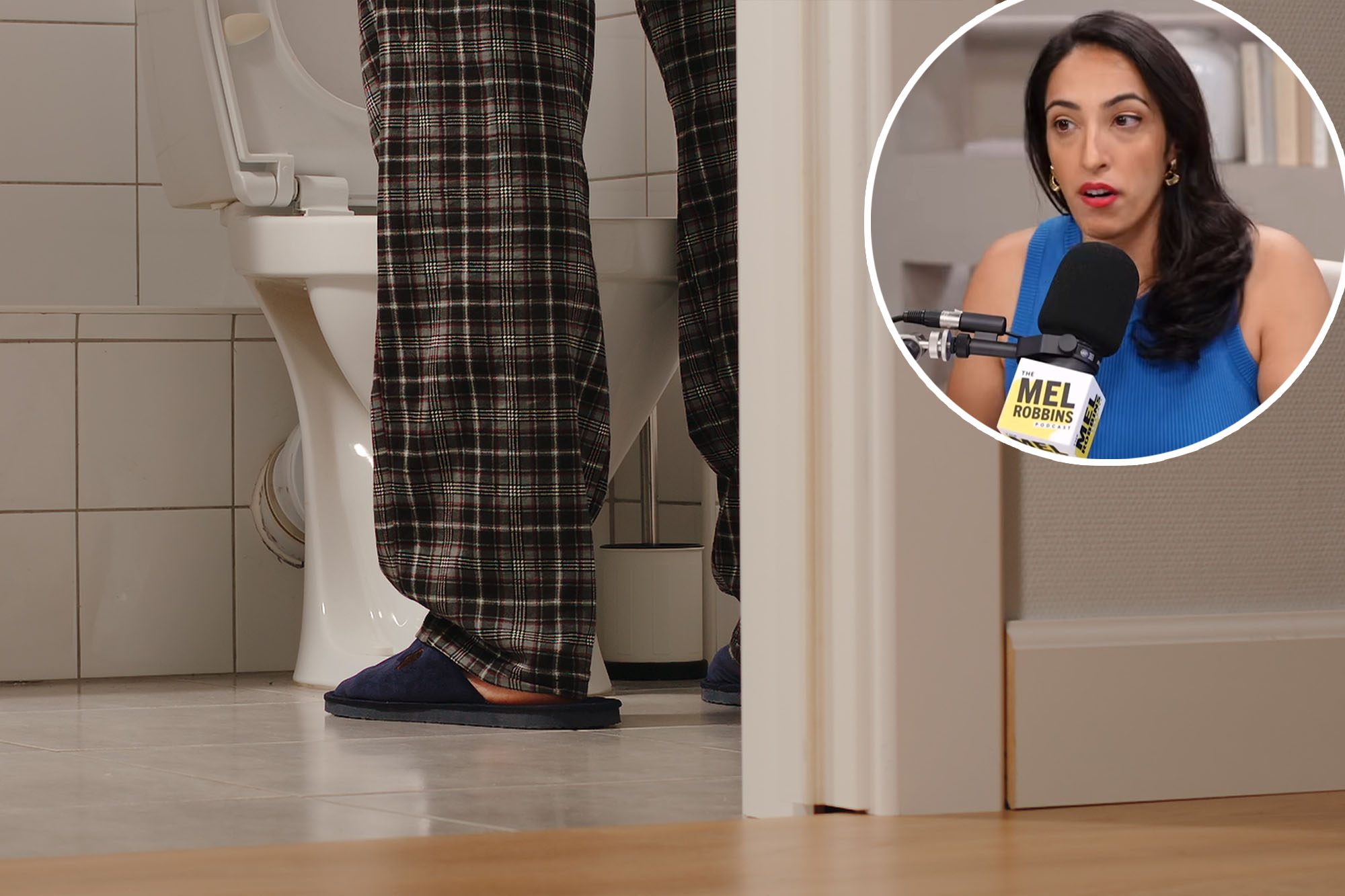
Are you waking up to fainting?
A leading urologist is spilling the beans – that is, the tea – on how many times you should get up to pee each night.
But this golden rule isn’t for everyone: The number of middle-of-the-night bathroom trips you can reasonably make varies if you’re under 55 or older.
Mel Robbins, a best-selling author and personal development coach, recently hosted Dr. Rena Malik, a board-certified urologist, on her podcast to discuss the importance of the pelvic floor and its connection to nocturnal stops.
Robbins explained that the pelvic floor is an essential part of the human anatomy that “has an impact on everything from normal urinary function, bowel function, your orgasm, everything.”
Malik compared the pelvic floor to a hammock, explaining that it is actually part of the core.
“It’s a bowl of muscle in the pelvis that holds your organs. You’re using them all the time, but it’s a matter of whether they’re going through their full range of motion, they’re tight or they’re loose,” she said.
Malik noted that waking up multiple times during the night to urinate is a complex symptom that can indicate an overactive bladder or weakened pelvic floor muscles.
On average, adults urinate six to seven times in a 24-hour period and can usually sleep six to eight hours without a bathroom break. Experts agree that if you get up more than once a night to urinate, you may have nocturia, or nocturia.
Malik claims that if you’re under 55, you generally shouldn’t get up to urinate in the middle of the night at all. If you are over 55, getting up once is considered normal and anything else can be a problem.
She explained that the reason for that difference is that the body starts producing one-third of its urine at night due to hormonal changes later in life.
“You’ll have to wake up once because your bladder just can’t hold that much,” she said.
However, there are modifiable factors that affect urination, including fluid consumption.
“If you’re drinking a ton of water before bed or have a glass of water by your bed, you’re going to have to get up to pee,” she explained.
Not just how LOT you drink important when thinking about the frequency of urination, but it is also what you are drinking and how long you are consuming it.
“Alcohol and caffeine are the most common causes of bladder irritation. They change the sensitivity of the bladder so it spasms and makes you want to go more often.”
She added that alcohol and caffeine are both diuretics, which means you’ll produce more urine and that will result in more urinary symptoms within two to four hours of consuming the liquid.
“Both of these things can affect you and they can change throughout your life. Anyone can be
like, ‘I’ve been drinking the same amount of coffee all my life, and now I drink that cup and I have to go.’ “I would never stop drinking coffee, so I’m not going to tell you to stop,” she said.
While she doesn’t tell people to give up caffeine, she recommends cutting back on a cup or switching to decaf for your second cup: “Just experiment with it so you know that’s what triggers it.”
That way, you can make an informed decision based on your definition of quality of life.
Malik said that while individual preferences will affect fluid consumption, those who prioritize sleep should aim to avoid drinking anything in the hours before bed.
Over a third of adults fall short of the recommended seven to eight hours of sleep each night.
Lack of sleep may lead to what some experts call a “silent epidemic” — a condition called non-alcoholic fatty liver disease (NAFLD), which affects more than one in four American adults, according to the Association American Heart.
Numerous studies have linked a lack of high-quality sleep to weight gain, increased hunger, and poor blood sugar control.
Insulin resistance is an important risk factor for NAFLD, and the risk is extremely high for postmenopausal women. One study found that chronically short sleep duration led to a 20% increase in insulin levels among that group, compared to 15% overall.
However, Malik’s concerns about her older patient’s nightly bathroom visits extend beyond urinary health and sleep quality.
“I worry about them waking up in the night to urinate because if you wake up and it’s dark, you’re navigating the bathroom, something trips you, you fall or you break your hip. If you’re a little older, your risk of dying in that year after a hip fracture is 20%, so it’s a big deal. Waking up at night puts you at risk,” she warned.
#times #night #normal #urinate #doctor
Image Source : nypost.com